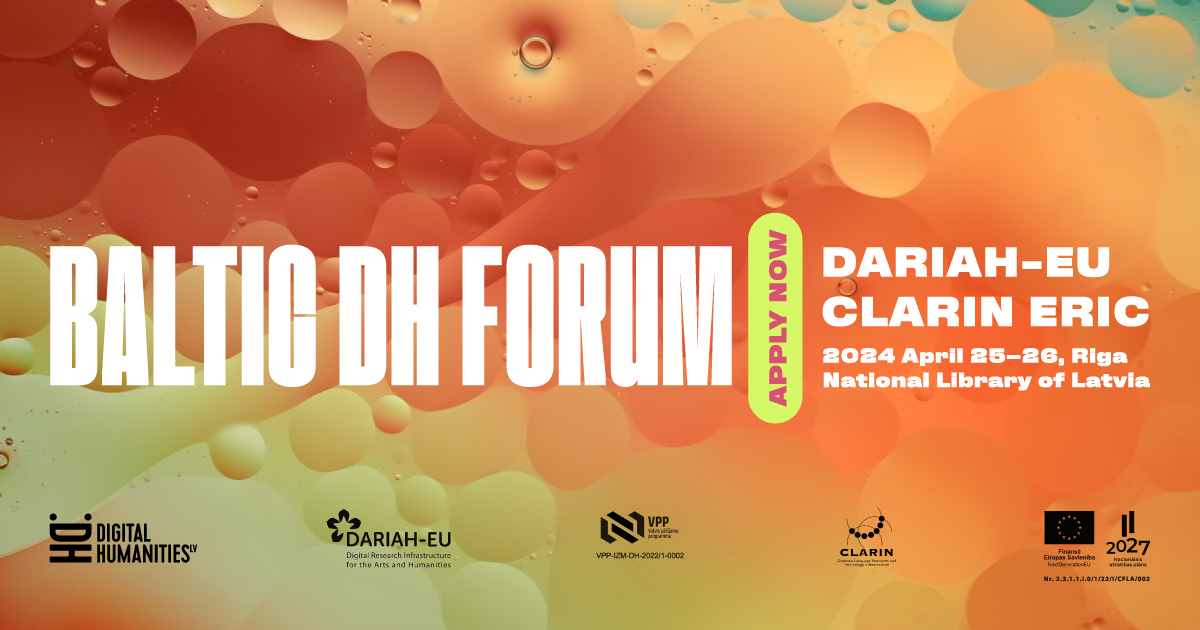
Official event website: http://www.digitalhumanities.lv/baltic-dh-forum-2024
Digital humanities have become a solid part of the research landscapes in the Baltic countries. Certainly, over the past decades, this transformation has been evident through the vibrant and enthusiastic DH communities, the emergence of new research groups and centers, and the increasing presence of digital humanities courses and programs in higher education. This marks the right time for the digital humanities communities of the three Baltic States to come together, to look at how and in what directions DH has developed in our countries, to reflect on what is relevant today and to project what lies ahead in the near future.
The Baltic DH Forum will take place for two days. The initial day will comprise three sessions featuring invited speakers from the Baltic DH research communities, Ministries, and prominent European digital humanities infrastructures, including CLARIN ERIC and DARIAH-EU. The second day is designed as a networking platform providing an opportunity to present DH projects, showcase developed digital resources and tools, and introduce educational initiatives. Additionally, the afternoon of the second day will host a series of workshops covering successful practices in collaborative projects, fundraising opportunities, and other relevant topics.
Participation in the forum with presentation is free of charge with coffee breaks, lunches, and a dinner provided.
To apply for participation in the Baltic DH Forum “Demonstration and Networking Session” (2nd Day), you are invited to submit an abstract of your presentation (200–250 words) in one of the following categories:
Submissions are encouraged in diverse areas within digital humanities, including, but not limited to:
Submit your proposals here by January 25, 2024.
Applications will be peer-reviewed by the programme committee, with the main criterion being relevance to the field of digital humanities.
During the “Demonstration and Networking Session” each presenter is expected to give a brief pitch talk (approximately 5–7 minutes) to the plenary audience, followed by discussions at the poster hall.
After the Baltic DH Forum, participants will be offered an opportunity to prepare a peer-reviewed publication for a special issue of The Baltic Journal of Modern Computing, Scopus-indexed.
If you have any questions, feel free to contact us at dh@lulfmi.lv or sanita.reinsone@lulfmi.lv.
Programme committee:
LV: Sanita Reinsone (ILFA*), Haralds Matulis (ILFA), Inguna Skadiņa (IMCS), Anda Baklāne (NLL), Ilze Auziņa (IMCS), Normunds Grūzītis (IMCS), Antra Kļavinska (RTA), Jānis Daugavietis (ILFA), Valts Ernštreits (UL LI)
LT: Andrius Utka (VDU), Costis Dallas (VU)
EE: Joshua Wilbur (UT)
Administrative support:
Viktorija Piščikova (NLL), Līva Ostupe (ILFA), Māris Bušs (UL DF), Māra Bičevska (UL DF), Elvīra Žvarte (ILFA), Ilze Ļaksa-Timinska (ILFA)
Institutions*
ILFA: Institute of Literature, Folklore and Art of the University of Latvia
IMCS: Institute of Mathematics and Computer Science of the University of Latvia
NLL: National Library of Latvia
RTA: Rēzekne Technology Academy
UL DF: University of Latvia Faculty of Computing
UL LI: University of Latvia Livonian Institute
UT: University of Tartu
VDU: Vytautas Magnus University
VU: Vilnius University
Supporters
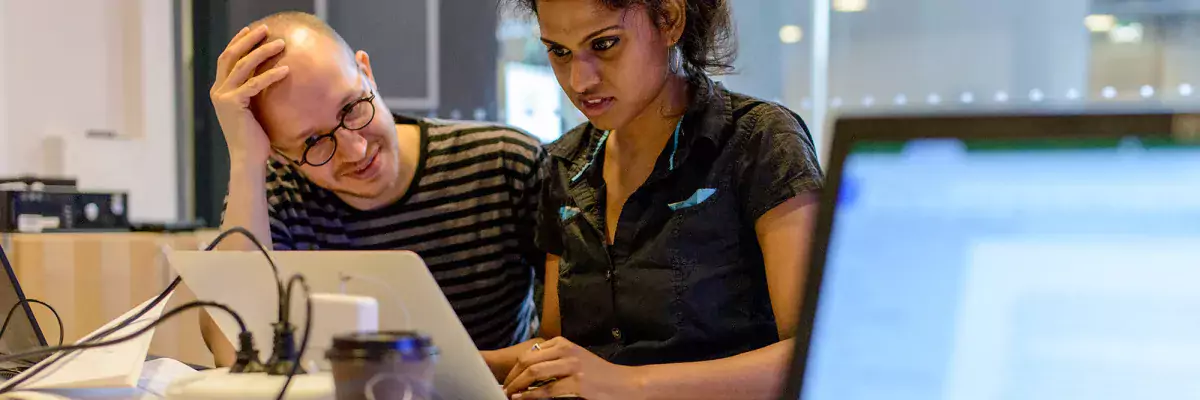
Official event website: https://www.helsinki.fi/en/digital-humanities/teaching/digital-humanities-research-seminar
Thursdays at 16:15-18:00 (time in Finland = EEST/EET time zone)
Place: Metsätalo, Lecture Hall 17 and Zoom (unless otherwise noted)
If you want to participate in-person, come to Metsätalo, Lecture Room 17 unless otherwise noted. You can also take part on Zoom (unless otherwise noted).
Meeting ID: 671 1257 5191
Passcode: 123123.
Updates and possible changes will be noted in due course. The seminar is open. If you want to join our mailing list, need credits, or have any questions about the seminar, write to Mikko Tolonen.
And, as always, all welcome!
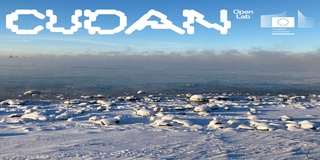
Official event website: https://cudan.tlu.ee/conference/
We invite submissions for the Cultural Data Analytics Conference 2023 / CUDAN 2023, organized by the ERA Chair project for Cultural Data Analytics at Tallinn University, generously funded by the European Commission. Inspired by initial large gatherings of the cultural analytics community, including UCLA/IPAM 2016, and multidisciplinary conferences such as NetSci, IC2S2, or CCS, we aim to bring together researchers, practitioners, and stakeholders using methods of cultural data analytics to understand cultures and cultural production. This particularly includes multidisciplinary combinations of quantification, qualitative inquiry, computational analysis, and visualization to make sense of large cultural datasets, including visual, audiovisual, linguistic, and other genres of socio-cultural materials. The conference is scheduled to happen in Tallinn, Estonia from December 13 to 16, 2023, including a number of leading invited practitioners, peer-reviewed talks, and poster contributions from the community.
Abstracts due: July 24, 2023 (23:59 CET)
Notification of acceptance: September 14, 2023
Conference: December 13-16, 2023
Pre-conference workshops: December 13, 2023
Main conference: December 14-16, 2023
 Winter morning in Tallinn. CC-BY Maximilian Schich
Winter morning in Tallinn. CC-BY Maximilian Schich
– Petter Holme, Aalto University, Helsinki, Finland (https://petterhol.me/)
– Béatrice Joyeux-Prunel, Université de Genève, Switzerland (https://www.unige.ch/…)
– Mauro Martino, Visual Artificial Intelligence Lab, IBM Research, Boston, USA (https://www.mamartino.com/)
– Anu Masso, TalTech, Tallinn, Estonia (https://taltech.ee/…)
We invite authors to submit a single-page abstract pdf including a (mandatory) descriptive figure and caption by the 24th of July 2023 via our OpenReview submission system. We accept contributed talks, lightning talks, and posters (please indicate your preference). We strive for an in-person event to maximize community interaction, yet we will offer a limited amount of remote presentation slots. Review is single-blind.
In the spirit of multidisciplinary abstract conferences and idea conferences, we encourage submissions which aim to present entirely novel work, and also recently published contributions which would benefit from broader multidisciplinary discussion. In the latter case, please make sure to cite the original publication venue.
SUBMIT HERE: https://openreview.net/group?id=CUDAN.tlu.ee/2023/Conference
Cultures and cultural production are multifaceted phenomena, which, like other complex systems, cannot be fully understood from the perspective of a single specific discipline. This is why the core mission of cultural data analytics is to join forces and make headway across disciplines and domains of expertise. Feeding into this mission, we welcome both multidisciplinary submissions, and contributions from specific disciplines, which aim to benefit from discussion in a multidisciplinary forum.
We encourage discussion towards a deeper understanding of cultures and cultural production including aspects, methods, and intersections of the following fields:
– cultural analytics, culturomics, and socio-cultural data science;
– digital humanities and computational humanities;
– cultural evolution, including experimental and observational approaches;
– cultural complexity science, network science, computational social science, and social physics;
– computational linguistics, quantitative aesthetics, critical computer vision, and machine learning;
– art history, cultural history, cultural semiotics, film studies, musicology, and urbanism;
– artistic research, algorithmic curation, and AI art (including aspects of cultural data analysis);
– creative industries research, media economics, and policy studies;
– data journalism, data science, and information visualization.
Contributions ideally address at least one of the following subject domains (in line with state-of-the-art conceptual reference models for cultural data):
– material aspects, including artworks, architecture, texts, images, sound, film, digital media, databases, and other forms of tangible cultural heritage;
– conceptual aspects, including cultural practices, rituals, theories, policies, data models, narratives, imagined communities, and other forms of intangible cultural heritage;
– social aspects, including human behaviour, human mobility, social networks, and social media;
– temporal aspects, from slow historical processes to turbulence in today’s economy of attention;
– spatial aspects of historical topography, cultural geography, and urban dynamics;
– event aspects, which combine the above aspects in cultural co-production, event series, tourism, etc.;
– network aspects of socio-cultural interaction, including the inherent ecology of complex networks as documented in the structure and dynamics of large cultural knowledge graphs or blockchains associated with the crypto-art-market, for example.
The CUDAN 2023 main conference programme (December 14-16, 2023) will include six keynotes covering the spectrum of relevant disciplines, a lightning talk session in the plenary, parallel sessions, and a poster section. The latter will run throughout the whole conference in the coffee and lunch area that is collocated with the plenum. The conference will close with a best poster and best paper award ceremony.
The pre-conference day (December 13, 2023) will feature introductory workshops by CUDAN senior fellows, covering aspects of cultural data analysis and visualization using Python, R, Tableau, and the Collection Space Navigator.
Before and after the main conference, we will offer sightseeing tours, including the medieval Tallinn old town and Christmas market (among many reasons to visit Estonia).
We are further planning a meet the publisher’s session and other opportunities for relevant stakeholders, including exhibition booths.
If you or your institution/company is interested in participation, please contact us via email to cudan@tlu.ee, ideally before September 14, 2023.
As we are fully funded through the European Commission, there will be no conference fee for accepted participants, with the exception of the conference dinner. Accepted participants are required to register and confirm their attendance. Information regarding accommodation (including reduced rate hotels) and a form to order VISA support letters will be announced on the conference website (https://cudan.tlu.ee/conference/).
Maximilian Schich, CUDAN ERA Chair holder
Lev Manovich, Cultural Analytics Lab, City University of New York, US
Andres Karjus, CUDAN Senior Fellow (computational linguistics)
Ksenia Mukhina, CUDAN Senior Fellow (computer science)
Mila Oiva, CUDAN Senior Fellow (cultural history)
Mikhail Tamm, CUDAN Senior Fellow (social physics)
Sandra Kaljumäe, CUDAN Project coordinator
Sirli Peda, Tallinn University Conference Center
Sirli Taniloo, Tallinn University Conference Center
James Abello Monedero, Rutgers University, US
Yong-Yeol Ahn, Indiana University, Bloomington, US
Ruth Ahnert, Queen Mary University of London, UK
Sebastian Ahnert, University of Cambridge, UK
Kim Albrecht, Artist, Berlin, DE
Eduardo Altmann, The University of Sydney, AU
Sandra Alvaro, Universitat Autònoma de Barcelona, ES
Stefano Balietti, Universität Mannheim, DE
Clarisse Bardiot, Université Rennes 2, FR
Maria Christina Binz-Scharf, CUNY City College of NY, US
Chico Q Camargo, University of Exeter, UK
Nicola Carboni, Université de Genève, CH
Damiano Cerrone, Tampere University, FI
Javier Cha, University of Hong Kong, HK
CJ Chen, Nanjing University, CN
Ana Clemente, University of Barcelona, ES
Bronwyn Coate, RMIT University, AU
Michele Coscia, IT-University of Copenhagen, DK
Brian Coxall, Brigham Young University, US
David J. Crandall, Indiana University, US
Christine Cuskley, Newcastle University, UK
Maria-Rita D’Orsogna, University of California, Los Angeles, US
Kate Elswit, University of London, UK
Sara Irina Fabrikant, University of Zurich, CH
Elena Fedorovskaya, Rochester Institute of Technology, US
Jianbo Gao, Beijing Normal University, CN
David Garcia, Universität Konstanz, DE
Bruno Goncalves, Data For Science, Inc., US
Jack Grieve, University of Birmingham, UK
Daria Gritsenko, University of Helsinki, FI
Thilo Gross, HIFMB & Universität Oldenburg, DE
Ryan Heuser, Princeton University, US
Yurij Holovatch, National Academy of Sciences of Ukraine, UA
Natalie M Houston, University of Massachusetts at Lowell, US
Ana Jofre, SUNY Polytechnic Institute, US
Mauri Kaipainen, Perspicamus, Helsinki, FI
Folgert Karsdorp, Meertens Institute, NL
Lindsay King, Stanford University, US
Harald Klinke, LMU Munich, DE
Ilias Kyriazis, Fachhochschule Potsdam, DE
John Laudun, University of Louisiana at Lafeyette, US
Kristoffer Laigaard Nielbo, Aarhus Universitet, DK
Lik-Hang Lee, Hong Kong Polytechnic University, HK
Liina Lindström, University of Tartu, EE
Jordi McKenzie, Macquarie University, AU
Stefania Milan, University of Amsterdam, NL David Mimno, Cornell University, Ithaca/NY, US
Daria Morozova, Ecole des Hautes Etudes Commerciales, FR
Cassini Nazir, University of North Texas, US
Maarja Ojamaa, University of Tartu, EE
Giovanni Petri, Northeastern University London, UK
Iyad Rahwan, Max Planck Institute for Human Development, DE
Martin Rosvall, Umeå University, SE
Louis Michael Shekhtman, Northeastern University, Boston, US
André Skupin, San Diego State University, US
Oleg Sobchuk, Max Planck Institute for Evolutionary Anthropology, DE
Juan Luis Suárez, University of Western Ontario, CA
Pablo Suarez-Serrato, Universidad Nacional Autónoma de México, MX
Nina Tahmasebi, Språkbanken (The swedish language bank), SE
Timothy R Tangherlini, University of California, Berkeley, US
Mark Taylor, University of Sheffield, UK
Jer Thorp, New York University, US
Lauren Tilton, University of Richmond, US
Mikko Tolonen, University of Helsinki, FI
Stephen Miles Uzzo, National Museum of Mathematics, US
Melvin Wevers, University of Amsterdam, NL
Hyejin Youn, Northwestern University, Evanston, US
For updated information, please re-check the conference website (https://cudan.tlu.ee/conference/).
In case of questions, please do not hesitate to contact us via email to cudan@tlu.ee.
We’d love to welcome you in Tallinn, Estonia in December 2023!
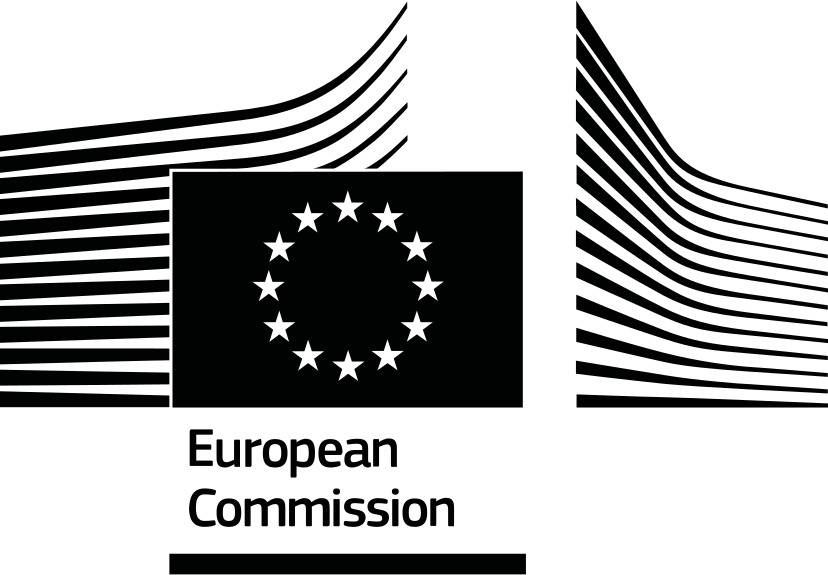

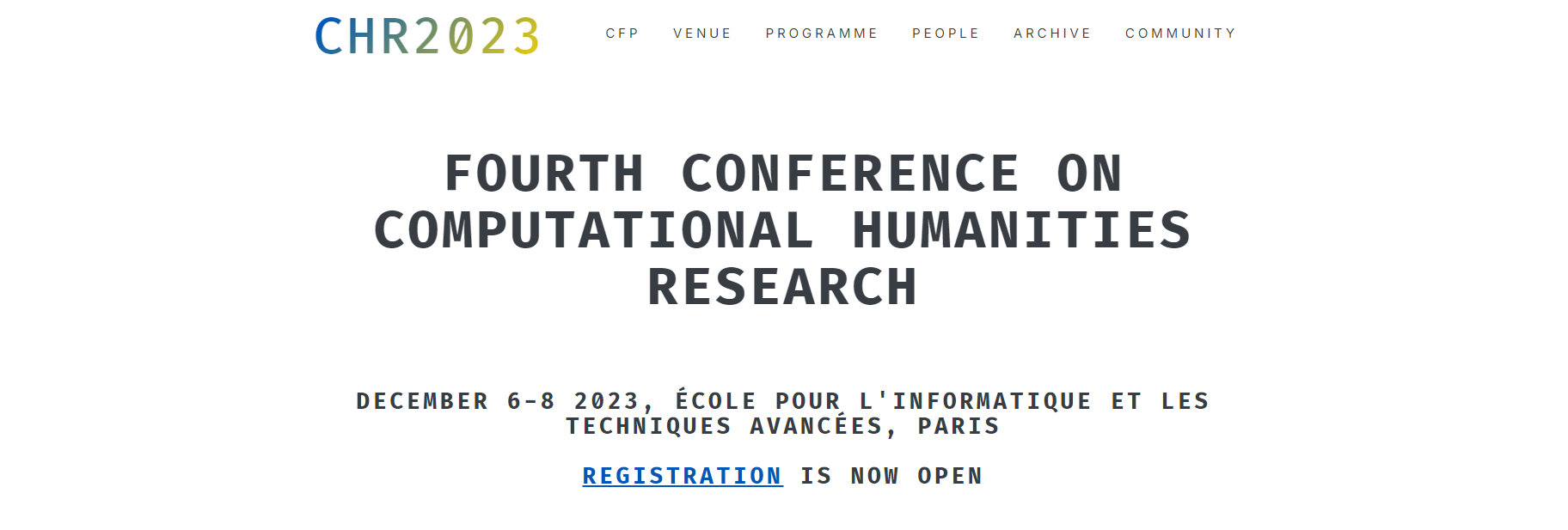
Official event website: https://2023.computational-humanities-research.org/
The Computational Humanities Research (CHR) community is an international and interdisciplinary community that supports researchers with an interest in computational approaches to the humanities.
The 2023 edition of the Computational Humanities Research conference will take place on December 6-8, 2023 in Paris at the École pour l’informatique et les techniques avancées. Expect more details about CHR2023 soon!
Visit our forum for the latest updates and more information about the conference.
We are very honoured and pleased that Richard McElreath, Olivier Morin, and Roberta Sinatra have agreed to give keynote lectures at CHR2023.
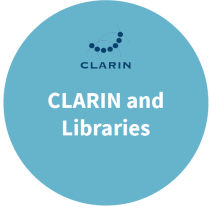
Official event website: https://www.clarin.eu/event/2023/clarin-and-libraries-2023-large-language-models-and-libraries
The workshop builds upon the first CLARIN and Libraries workshop held in the Hague in May 2022 (see here).
This year's workshop will investigate further areas of collaboration between CLARIN-related initiatives and libraries with a special emphasis on building (large) language models in and in cooperation with libraries. The workshop will bring together for the second time a group of people associated with both CLARIN (or other research infrastructures) and libraries. Whereas the first CLARIN and Libraries workshop was particularly concerned with digital content delivery for researchers, the main theme of the second workshop will be large language models and library collections, e.g. technical challenges in building such models and legal implications of model training and use.
The host, the National Library of Norway (NLN), has since 2005 digitised its entire text collections, amounting at present to a large corpus of 160 billion words for Norwegian and has built large language models for text (BERT, GPT-2, T5) and speech (wav2vec, Whisper) on these collections. There will be keynotes from the National Libraries of Norway and Germany on the technical aspects of building such models in a library setting, as well as a keynote on the legal aspects of building large language models from the Swedish National Library.
Participation in the workshop is by invitation. If you are interested in attending, please contact your national coordinator or clarin@clarin.eu. The venue (National Library of Norway, Henrik Ibsens gate 110, Oslo) is located very close to the train station Nationaltheatret. Descriptions for getting to the venue can be found here.
| 12:00 - 13:15 | Lunch (Cafeteria, National Library of Norway) |
| 13:15 - 13:30 | Welcome |
| 13:30 - 15:00 | Introduction to CLARIN and Libraries, wrap-up from last year’s workshop (15 mins)Tour de table: introduction and points for discussion (45 mins)Library collections as data (Sally Chambers) |
| 15:00 - 15:30 | Break |
| 15:30 - 17:00 | Large language models at the National Library of Norway (Javier De La Rosa)Large language models at the German National Library (Peter Leinen)Discussion: technical aspects (chair: Andreas Witt) |
| 17:00 - 17:30 | Sensitive Data in HPC – How secure can it be? Is secure data processing in shared computing environments a dream? (Martin Matthiesen) |
| 19:00 | Evening social dinner (Avalon, Munkedamsveien 31, Oslo) |
| 9:30 - 10:30 | Lightning Talks: Participants who have registered for a lightning talk (see separate invitation by e-mail) will have the possibility to introduce their own projects and resources. |
| 10:30 - 11:00 | Break |
| 11:00 - 12:00 | Legal aspects of large language models in libraries (Jerker Rydén)Discussion: legal aspects (chair: Andreas Witt) |
| 12:00 - 13:00 | Lunch (Cafeteria, National Library of Norway) |
Address
National Library of Norway
Henrik Ibsens gate 110
0255 Oslo
Norway
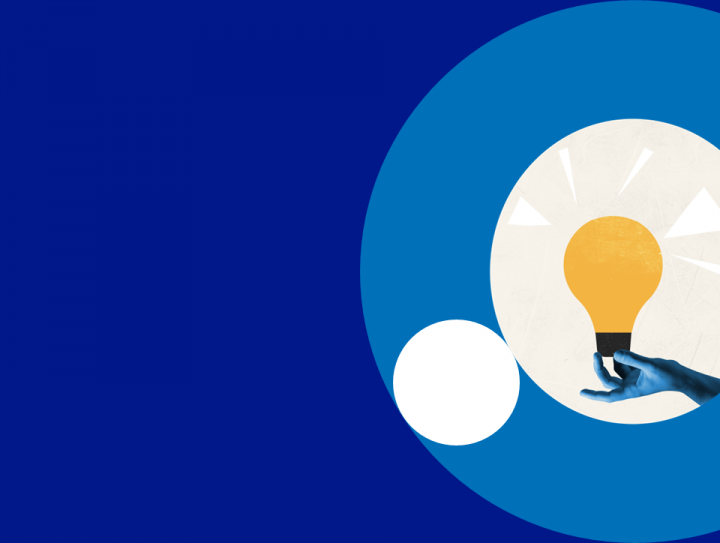
Official event website: https://data.europa.eu/en/news-events/news/are-you-student-or-academic-sign-workshop-how-use-open-data-your-research
Join our workshop tailored to students and academics to learn how to use open data from data.europa.eu for your research.
On Thursday 19 October from 10.00 to 12.00 CET, data.europa.eu will host its first workshop series on ‘How to use open data for your research’. This series, designed for students and academics is also open to anyone interested. The goal is to showcase the relevance and importance of open data for academic purposes. During this workshop, you will learn how to use open data from our portal for research and get examples from universities that have already embraced open data in their daily operations.
The workshop will start with an introduction by the Publications Office of the EU on open data and data.europa.eu. Following that, a hands-on presentation will be given through the portal, demonstrating how to efficiently search for specific datasets. Furthermore, three esteemed universities - KU Leuven, University of Amsterdam, and University of Naples L'Orientale - will present practical examples of how open data can be used to conduct Research.
These universities offer three distinct perspectives on using open data in research. The KU Leuven Research Repository provides access to open research data through their database, providing valuable resources to students. The University of Amsterdam offers a practical example of how linked open data can drive research and the UniOR NLP Research Group of the University of Naples L'Orientale will showcase a real-life example of exploiting open data for applications.
Following the informative university presentations, a short practical assignment will be given to help put the learnings into practice. To wrap up the practical assignment, you will have the opportunity to share your insights and ask your questions during the Q&A session.
Do you want to improve your digital skills and learn about the relevance of open data for academic purposes with real-life examples? Click here to register for the workshop.
For more news and events, follow us on Twitter, Facebook and LinkedIn, or subscribe to our newsletter.
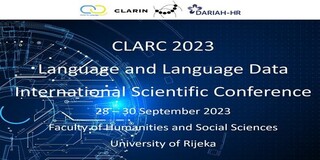
Official event website: https://cji.uniri.hr/en/hr/konferencija/clarc2023/
The Center for Language Research at the Faculty of Humanities and Social Sciences in Rijeka, Croatia is organizing the international scientific conference CLARC 2023 (cji.uniri.hr/clarc2023) entitled "Language and Language Data". You are invited to participate by presenting a scientific paper and/or organizing a panel on a relevant topic (extended deadline until July 31). We welcome high-quality presentations on empirical, theoretical, and methodological issues in science related to the theme of "Language and Language Data".
CLARC2023 will cover various topics in the fields of language technology and linguistics. Participants will have the opportunity to engage in panels and lectures that encompass areas such as computational linguistics and natural language processing, corpus linguistics, phonetics, phonology, morphology, syntax, sociolinguistics, pragmalinguistics, discourse analysis, language acquisition, psycholinguistics, neurolinguistics, language and cultural studies, language data from legal and economic perspectives, language and tourism, as well as medicine and public health.
The conference will feature inspiring keynote speakers, including Maja Miličević Petrović from the University of Bologna, Marko Tadić from the University of Zagreb, Tony Veale from University College Dublin (UCD), and Nikola Ljubešić from the Jožef Stefan Institute.
Additionally, various events will be organized, such as a panel section on transforming language and linguistics studies with the results of the UPSKILLS project (Upgrading the Skills of Linguistics and Language Students), a round table on career transitions from linguistics to data science, and a round table on linguistics and large language models. Participants will also have the opportunity to attend the co-occurring event RIKON 2023, the largest fantasy convention in Croatia with a rich tradition.
Please read the details about submissions, the deadline for abstracts and full papers, as well as information about registration fees on the official website of CLARC 2023: https://cji.uniri.hr/clarc2023
We look forward to your valuable presence at this conference, which brings together experts in the fields of language technology and linguistics.
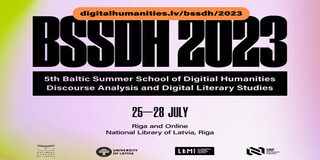
Official event website: http://www.digitalhumanities.lv/bssdh/2023
When: 25 July - 28 July 2023
Where: Riga, National Library of Latvia and Online
Language: English
Duration: 4 days
Credits: 3 ECTS
Fee: 30 EUR*
Welcome to the annual Baltic Summer School of Digital Humanities (BSSDH 2023)!
This year’s programme offers must-have introductory courses for digital humanists and digital social scientists who wish to come to grips with programming with Python, collecting web data, and network visualization. For the first time, an advanced Python class is also available. The course is co-taught by an international team of researchers and practitioners of digital humanities and digital social sciences coming from Latvia, Finland, Sweden, and Poland. As always, this will be a great opportunity to meet colleagues and mentors from other countries and explore different perspectives!
The programme includes workshops and lectures in:
PARTICIPANTS
The Baltic Summer School of Digital Humanities is aimed at students and researchers of humanities and social sciences, library, and archives professionals. There are no prerequisites for participation, as the course does not require any background in DH computing. The working language of the summer school is English. After successful completion of the summer course, students will be awarded 3 ECTS by the University of Latvia.
REGISTRATION FEE*
30 EUR includes: Full access to all lectures and workshops, onsite or online. Food and drinks during lunch and coffee breaks for onsite students. Access is free of charge for assistants of workshops and other volunteers. Contact dh@lnb.lv to apply!
REGISTRATION FORM
https://reg.lnb.lv
SUPPORTERS
State Research programme
Nr. VPP-IZM-DH-2020/1-0002
ORGANIZERS
BSSDH 2023 is organized by a joint effort of the National Library of Latvia, Institute of Literature, Folklore and Art (University of Latvia), Faculty of Social Sciences of the University of Latvia.
CONTACT US
Coordinator Anda Baklāne
anda.baklane@lnb.lv
dh@lnb.lv
+371 29 143 299
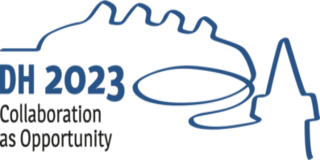
Official event website: https://dh2023.adho.org/

July 10-14 2023, Graz | Austria
We are looking forward to welcoming you to Graz, Austria from the 10th to 14th July 2023!
Registration for the conference is now open and possible at: https://www.conftool.pro/dh2023/
DIGITAL HUMANITIES (DH) is at the intersection of computing or digital technologies and the disciplines of the humanities. It involves the development and use of digital resources and methods in the humanities, as well as the analysis of their application. DH scholarship means collaborative, transdisciplinary, and computationally engaged research, teaching, and publishing.
The Alliance of Digital Humanities Organizations (ADHO) promotes and supports digital research and teaching across all humanities disciplines, acting as a community-based advisory force, and supporting excellence in research, publication, collaboration and training.
The annual ADHO Digital Humanities Conference is the central and largest event of the international DH community and unites scholars from across the globe, presenting them with a unique opportunity for the exchange of their work and ideas and the fostering of future collaborations.
The conference theme, “Collaboration as Opportunity” showcases transdisciplinary and transnational collaboration, with a special focus on the South-Eastern European DH community. It will explore how mutual empowerment and collaboration of neighboring countries – regardless of continent and geopolitical placement – can transform regional hubs of expertise to international networks of excellent research, to the benefit of the global DH community.

Official event website: https://www.rara.ee/en/events/digital-memory-2023/
https://www.nlib.ee/et/sundmused/digimalu-seminar-2023
The next Digital Memory seminar will take place in the Architecture Center (Tallinn, Põhja pst 27a) on March 30 from 10:00 to 19:00. This time the focus is on creative use of digital collections.
Inspiration comes from the presentations by Annika Rockenberger (Oslo University), Fredrik Norén (Umeå University), Vojtěch Malínek and Tomasz Umerle (Polish Academy of Sciences), Jessica Wevers and Rianne Koning (Royal Library of the Netherlands), Sophie Hammer and Martin Krickl (National Library of Austria), and Thomas Padilla (Internet Archive). All presenters join the seminar online and are in English.
In addition, there will be a discussion panel on the future of digital creative use and a practical workshop.
The day ends with the presentation of the newly developed RaRa virtual lab platform.
Both will take place on the location and in Estonian.
We ask that you register for the seminar no later than 23.03 at 18.00 so that we know how to account
for food.
You are welcome to share the invitation with your colleagues!
10.00 Welcome I Moderators for the day: Laura Nemvalts (Specialist of Digital Humanities at National Library of Estonia) and Krister Kruusmaa (Data Scientist at the National Library of Estonia)
10.05 Opening words I Janne Andresoo (General Director at the National Library of Estonia)
10.10–11.40 Inspiration panel (all the presenters join the seminar through Zoom; in English)
Annika Rockenberger (University of Oslo Library) – “Sharing is Caring. Digital Research Support, Skills Development & Special Collections Digitisation at the University of Oslo Library”
The presenter talks about a core value of libraries: sharing. Sharing knowledge and information, but also skills, methods, and research activities. The University of Oslo Library is Norway's oldest university library and, until 1999, served as Norway's National Library, too. Now, it is home to a vast collection of research literature and several unique special collections of mostly non-Norwegian origin. With a recent strategic re-orientation, the library is focusing on digitisation in its various aspects. Their leading thought is: „How can we share our various collections – and smaller, more dispersed collections at the faculties and institutes at the University of Oslo - with our researchers and students here in Oslo, in Norway, and beyond: with the international scientific and cultural heritage community?“. They employ a three-fold approach:
Jessica Wevers and Rianne Koning (Royal Library of the Netherlands) – “Creative experiments by students”
KB collaborated with the art academy, creating artistic exhibitions in the national library with the digitized Alba Amicorum collections. Additionally, they created a living library by building interactive installations with students from the technical university of Delft using our digital collections.
Sophie Hammer and Martin Krickl (Austrian National Library) – “ONB Labs Artistic Experiments – Artists engaging with digital collections of the Austrian National Library”
ONB Labs is the platform of the Austrian National Library for the scientific and creative use of digital collections. In addition to the general opening of selected digital collections as images, texts and metadata, the ONB Labs actively seek the exchange with young as well as established artists since the beginning of the ONB Labs in 2018. This talk discusses the process and results of the ONB Labs' recent 'artistic experiments': three programs that invited artists to creatively and critically engage with the library's digital collections, organised in the course of the EU co-funded project "Open Digital Libraries".
11.40–12.10 Coffee break
12.10–13.10 Discussion panel I “About the future of creative use of digital collections – where could we move on and what should we do about it” I Moderated by Peeter Tinits (Head Specialist of Digital Humanities at the National Library of Estonia) (in Estonian)
Panelists: Kadri Vare (Institute of the Estonian Language), Mikk Meelak (Estonian Academy of Arts, Platvorm), Mirjam Rääbis (Estonian National Heritage Board) and Indrek Ibrus (Tallinn University)
13.10–14.00 Lunch
14.00–15.30 Inspiration panel (all the presenters join the seminar through Zoom; in English)
Fredrik Norén (Umeå University) – “Swedish Riksdag 1867–2022: An Ecosystem of Linked Open Data”
The parliament has the power to transform society’s future. Its documents constitute a democratic resource for our present-day that, in turn, can be used by researchers to remodel our understanding of the past. In this talk, the presenter will present a newly funded research infrastructure project to enhance the possibility of exploring the Swedish parliamentary past. The purpose of the project is to (1) create a database of all members of parliament since 1867 and (2) to link members to the speeches they gave, motions they wrote, committees they were part of, and – if they were part of the government – bills they were responsible for.
Vojtěch Malínek (Polish Academy of Sciences) – “Current Situation in European Bibliographies for the Humanities”
The presentation will introduce the activities and outputs of Bibliographical Data Working Group (BDWG) of DARIAH-ERIC Consortium. Established in 2019, BDWG has gathered scholars, IT developers and data curators interested in bibliographical data curation and research. The main output of the BDWG efforts is a white paper "An Analysis of the Current Bibliographical Data Landscape in the Humanities. A Case for the Joint Bibliodata Agendas of Public Stakeholders" (2022) which is mapping current situation and trends in European landscape of bibliographies for humanities. Another project related to BDWG Community is a portal Literarybibliography.eu which tries to present European literary bibliographies in a joint interface. At the moment, three national datasets (Czech, Polish and Finnish) are available and systematically harmonised, while joint authority file is created based on re-use of wikidata. Last but not least, short overview of the Czech Literary Bibliography research infrastructure and its internationally relevant activities will be given.
Thomas Padilla (Internet Archive)
Increasingly, libraries, archives, and museums seek to support computational use of their collections as data. This talk will share lessons learned from a national effort to support small, medium, and large GLAM institutions in the development of collections amenable to computational research and pedagogy.
15.30–17.00 I Workshop I Participants reflect on the ideas received during the day and ground the inspiration gathered I Regina Tagger and Margus Veimann (Service Designers at the National Library of Estonia) (in Estonian)
17.00–19.00 I Presentation of the RaRa virtual lab platform by the National Library of Estonia team (in Estonian) followed by snacks and wine
*First part of the day will be recorded.
National Library of Estonia
Tõnismägi 2, 10122 Tallinn
+372 630 7100
info@rara.ee
rara.ee/en

